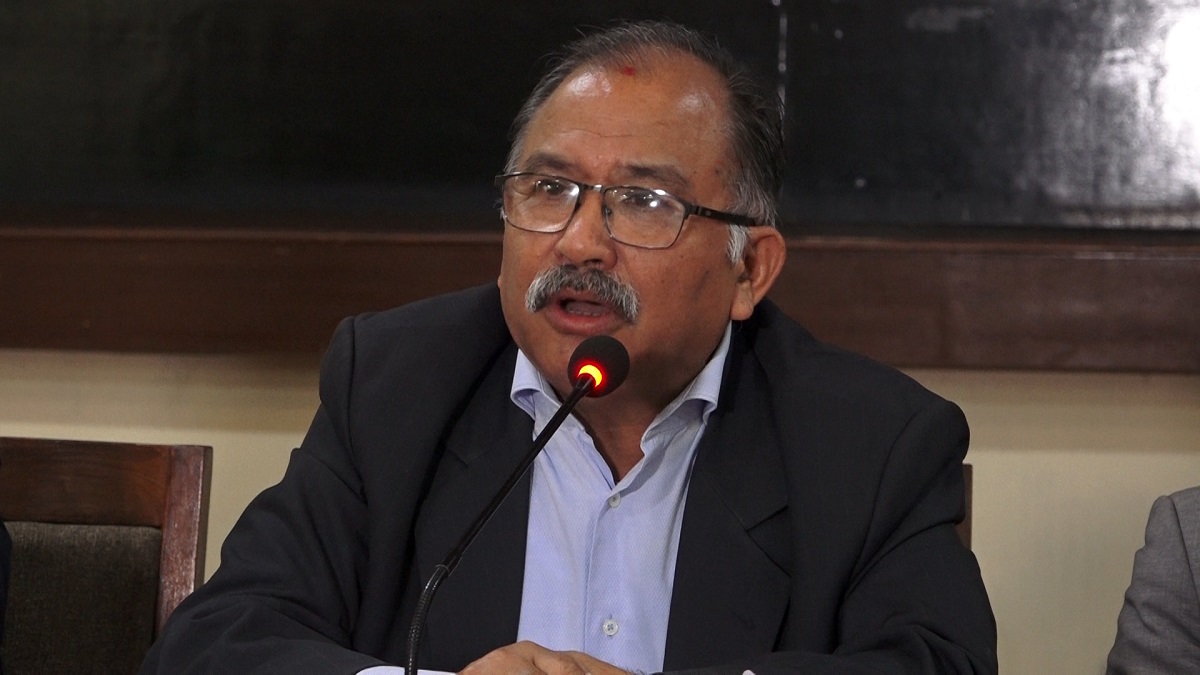KATHMANDU: Former Chief Justice Kalyan Shrestha has said the trend of labeling the violation of the constitution as a bold political move could not strengthen democracy.
Taking part in discussions on “Five Years of the Federal Parliament: An Overview, Monitoring and Evaluation Report” in Kathmandu on Tuesday, he questioned how democracy could strengthen if the act of infringing upon the constitution is considered a political step. He stressed that lawbreakers ought to be punished without exception.
He said, “Constitutional violation should be criminalized, and political differences, under any circumstance, should not lead to such violation of the supreme law. The last term of the Parliament could not bear outcomes as expected.”
He expressed worry that situation is such that lawmakers themselves actively engaged in unparliamentary activities.
Former Chief Justice Shrestha said as parliamentarians were under the grip of parties, the federal parliament could not formulate laws in a way that could be felt by the people during their five-year tenure.
He added since lawmakers had to pay more attention to the work of development and construction, they could not focus on law-making.
Clarifying that parliamentarians’ main job was to draft laws, he stressed they should be focused on it.
He also urged the political parties not to drag the Parliament towards unparliamentary practices.
Also taking part in the discussion, outgoing lawmaker and senior advocate Radheshyam Adhikari said the chaos witnessed in the executive, legislature and judiciary clearly indicated that parliamentarians had not been able to prioritize national problems.
He said, “Not being able to reach a consensus on passage of bills related to electricity, civil aviation authority, air aviation, federal education, health, among others, implied that the country was not oriented towards federalism.”
Outgoing National Assembly (NA) member Khimlal Devkota, who is also an expert on fiscal federalism, said the people closing watching the events that took place in the parliament during its five-year term were clear about what is right and what is wrong.
Another outgoing NA member Thagendra Prakash Puri opined that initiatives and activism of parliamentarians could only add to the respect, prestige and role of the sovereign parliament.
Nanda Chapagai wondered who would take action against those involved in the violation of the constitution.
Khem Lohani, outgoing member of the House of Representatives, said that the House could not run effectively due to the trend of handing election tickets to contractors. He added such agents becoming lawmakers were also found to be more interested in development rather than law-making.
He also pointed out that the people’s representatives responsible for checking the government’s activities needed adequate study and training.
Executive Director of Nepal Law Society Krishna Man Pradhan and Advocate Mohan Acharya were of the view that the parliament’s passage of 90 essential bills in the midst of instability could be considered as some achievement.
The discussion concluded that the parliament in its five-year term had also initiated good practices such as participation of both ruling and opposition sides’ in the registration of amendment proposals and discussion thereafter, the passage of bills following a high number of amendments and discussion, the trend of participatory approach and practice, and open discussion, among others.









Comment